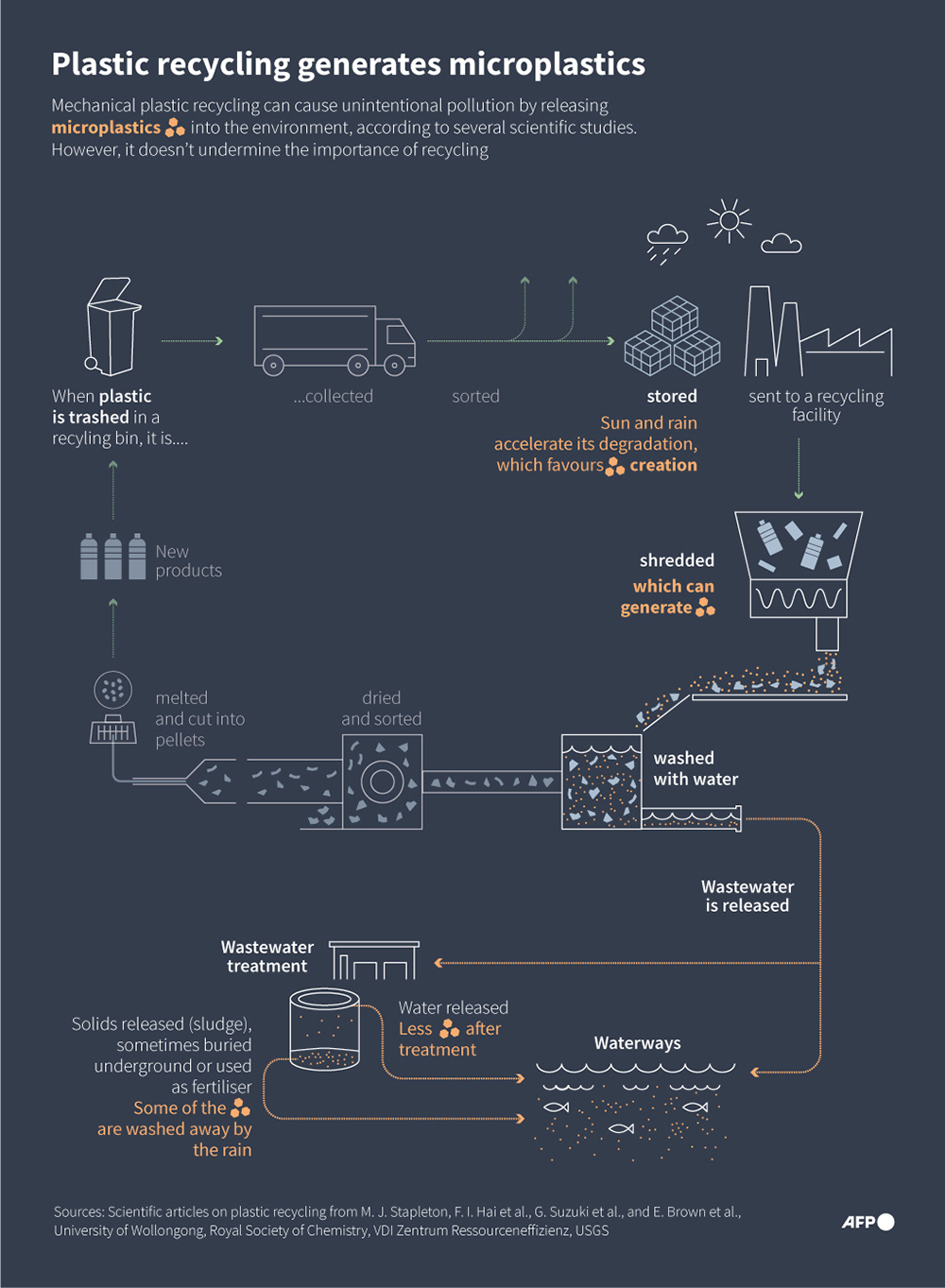Plastic pollution treaty not dead in the water: UN environment chief
A large bloc wants bold action such as curbing plastic production, while a smaller clutch of oil-producing states wants to focus more narrowly on waste management.
Plastic pollution treaty not dead in the water: UN environment chief
GENEVA - The UN's environment chief insists that a landmark global treaty tackling plastic pollution remains achievable, despite talks twice imploding without agreement, and the chair suddenly resigning this week.
United Nations Environment Programme (UNEP) executive director Inger Andersen told AFP in an exclusive interview that countries were not walking away, regardless of their sharp differences on combating the ever-growing problem, including in the oceans.
A large bloc wants bold action such as curbing plastic production, while a smaller clutch of oil-producing states wants to focus more narrowly on waste management.
Supposedly final talks in South Korea in 2024 ended without a deal -- and a resumed effort in Geneva in August likewise collapsed.
Countries voiced anger and despair as the talks unravelled, but said they nonetheless wanted future negotiations.
"We left with greater clarity. And no-one has left the table," said Andersen.
"No-one has walked away and said, 'this is just too hopeless, we're giving up'. No-one. And all of that, I take courage from."
'Totally doable'
The plastic pollution problem is so ubiquitous that microplastics have been found on the highest mountain peaks, in the deepest ocean trench and scattered throughout almost every part of the human body.
More than 400 million tonnes of plastic are produced globally each year, half of which is for single-use items.
While 15 percent of plastic waste is collected for recycling, only nine percent is actually recycled.
Nearly half, or 46 percent, ends up in landfills, while 17 percent is incinerated and 22 percent is mismanaged and becomes litter.
Annual production of fossil fuel-based plastics is set to triple by 2060.
As things stand, there is no timetable for when further talks might be held, and no countries have made formal offers to host them.
But Andersen "absolutely" thinks a deal is within reach.
"This is totally doable. We just need to keep at it," she said.
Red line clarity
UNEP has been shepherding the talks process, which began in 2022.
Summarising where countries are at, Andersen said: "The mood music is: 'we're still in the negotiations. We are not walking away. We have our red lines, but we have a better understanding of the others' red lines. And we still want this'."
Andersen said Norway and Kenya convened a well-attended meeting at the UN General Assembly in New York last month.
The COP30 climate summit in Brazil in November will provide another opportunity to put the feelers out, ahead of the UN Environment Assembly in Nairobi in December.
Luis Vayas Valdivieso, Ecuador's ambassador to Britain who chaired the last three of six negotiation rounds, has announced he is stepping down, leaving the process rudderless.
'Serious allegation'
Vayas's Geneva draft treaty text was instantly ripped apart by countries in brutal fashion, and while a revised effort gained some traction, the clock ran out.
British newspaper The Guardian reported that staff from Andersen's UNEP team held a covert meeting on the last night in Geneva, aimed at coaxing members of civil society groups into pressuring Vayas to quit.
"This is a very, very serious allegation," Andersen said.
"I did not know and obviously had not asked anyone to do something of this sort."
She said the allegation had been referred to the UN's Office of Internal Oversight Services.
"I've been in this business for 40 years, and I have never, ever done such a thing, and I would never have asked a staff of mine, or anyone else for that matter, to go and have covert meetings and quote my name and ask to undo a seated chair who is elected by member states. It's outrageous."
As for whether a new chair could provide fresh momentum, she said: "As always, when there's change, there is a degree of a different mood."